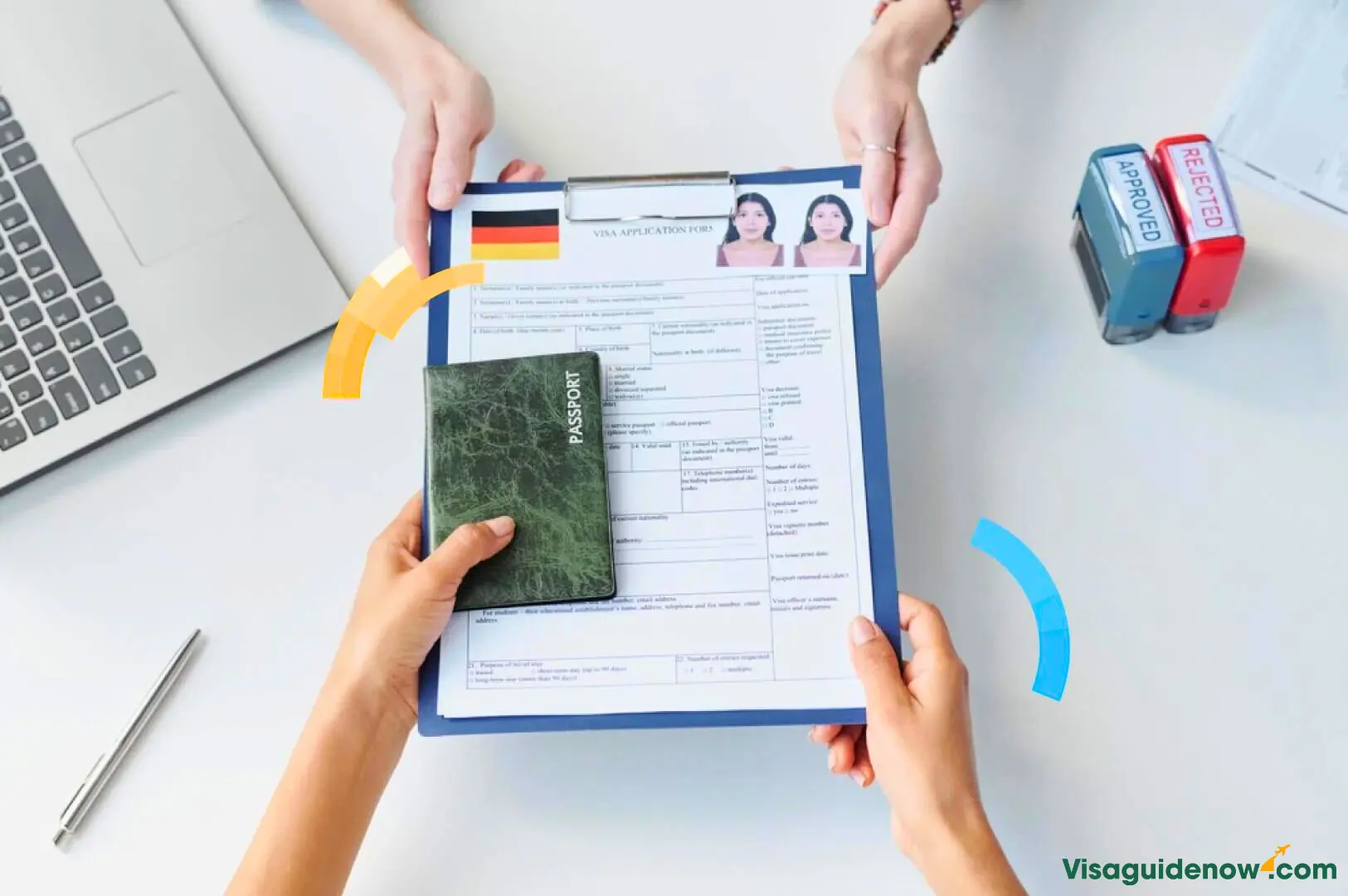Germany Visa Types, Requirements, and Application
Germany attracts numerous visitors annually, with many individuals aspiring to establish long-term residency. However, a prerequisite for entry is typically a valid visa. For further insights into Germany visa types, requirements, and application, delve into the following article.
Who needs a visa to enter Germany?
Visa exemption
- Citizens of European Union countries just carry documentation that identifies you, either a valid passport or an ID card:
- Citizens of other countries stay less than 90 days:
Pre-arranged visa
If you are a citizen of a non-EU country and wish to stay in Germany for longer than 90 days or are not listed above, you will require a visa from the German consulate. These are usually issued only to business travelers or students with a foreign exchange scholarship.
Germany visa types

Germany offers a variety of visas to accommodate different purposes of entry. The German Immigration Authorities have categorized these visas to streamline the application process. Here are the key types:
- Schengen visa: Visit family and friends, tourism, medical treatment, official, cultural, or sports visits.
- Business visa: Attend meetings and other business-related events.
- Student visa: For prospective students in Germany or those already admitted to a German university.
- Language course visa: For prospective students who need to attend a language course before full university admission.
- Student internship visa: For students participating in training programs or internships in Germany lasting over 90 days.
- Researcher visa: For international scholars and researchers participating in scientific events in Germany.
- Employment visa: For individuals with a job offer in Germany, allowing them to work in a paid position.
- Job seeker visa: For those seeking job opportunities in Germany without a job offer yet.
- Freelancer visa: For foreign freelancers in various fields to work in Germany independently.
Germany visa requirements
Getting a visa for Germany might seem like a straightforward process, but the requirements can vary between Schengen countries. Germany, in particular, has strict criteria, so it’s crucial to meet each requirement meticulously. Each country’s German embassy usually provides an updated checklist for different visa types.
Here are the Germany visa application essentials to consider:
- Application form: Complete it accurately, ensuring the information aligns with other required documents. You can download the form from our website.
- Passport: Follow the German embassy’s passport requirements, including a validity of at least three months beyond your planned Schengen stay.
- Photo: Take a recent photo meeting the German embassy’s standards.
- Health insurance: Provide proof of travel health insurance covering illnesses, accidents, and repatriation within the Schengen Area, with a minimum coverage of €30,000.
- Travel itinerary: Include round-trip flight reservations or documents indicating planned transport. Also, show your intended activities in Germany during your stay.
- Financial means: Demonstrate your ability to finance your stay, typically through a recent bank statement showing funds of at least €45 per day in Germany. If self-financing isn’t possible, submit a formal declaration from a third person willing to finance your trip, along with proof of their financial means.
How to apply for Germany visa?

Step#1. Checking visa requirements
To kick off the process, familiarize yourself with the specific requirements for the various visas applicable for a stay in Germany. Refer to the “Germany visa types” section to identify the requirements that pertain to your situation.
Step#2. Scheduling at the German embassy or consulate
If you meet the criteria for a visa, gather all the necessary documents outlined in the list available on the website of the German embassy or consulate in your country of residence. Simultaneously, book an appointment to submit your visa application.
If you’ve secured a job in Germany and your employer is eager for you to join promptly, make them aware of the expedited process for skilled workers. Coordinate this with your appointment at the embassy or consulate.
Step#3. Visa application in your home country
Submit your visa application to the German Embassy in your country of residence. Ensure that you are applying for a visa aligned with the purpose of your stay. For instance, if you’re heading to Germany for work, a work visa is essential. This visa is the gateway to obtaining a residence permit during your stay in Germany. Select the appropriate visa application form that corresponds to the purpose of your stay when completing your application.
Step#4. Arrival in Germany
Congratulations on receiving your visa! Now, plan your journey to Germany. Given the nature of a long-term stay, bring essential personal documents such as your birth certificate, post-secondary school or vocational qualification papers, driver’s license, or marriage certificate.
Keep in mind that you must be covered by a valid health insurance scheme from your first day in Germany. Be prepared to present proof of insurance when collecting your visa from the German embassy, at the latest.
Germany visa fees
The cost of a Germany short-stay visa stands at €80 for the primary applicant. However, fees vary based on the visa type and the applicant’s age. Notably, children under 6 are exempt from visa fees, while those aged 6 to 12 incur a reduced fee of €40.
Typically, the fee is settled post-interview. In some instances, it can be paid when completing the online visa application form, with this process contingent on the country.
It’s crucial to note that the Germany visa fee is non-refundable, irrespective of the application outcome. Additionally, digital wallets like Apple Pay or Google Pay are generally not accepted; payments are typically made in cash or by credit card, with the cardholder being the payer.
